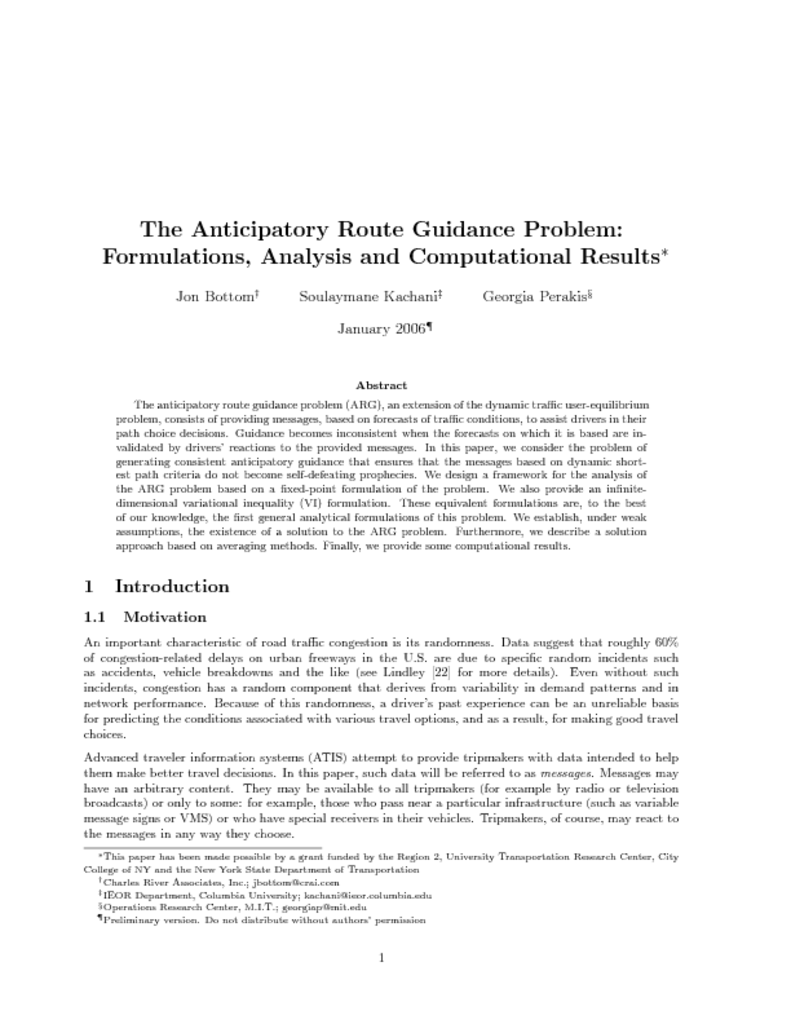The anticipatory route guidance problem (ARG), an extension of the dynamic traffic user-equilibrium problem, consists of providing messages, based on forecasts of traffic conditions, to assist drivers in their path choice decisions. Guidance becomes inconsistent when the forecasts on which it is based are in- validated by drivers' reactions to the provided messages. In this paper, we consider the problem of generating consistent anticipatory guidance that ensures that the messages based on dynamic shortest path criteria do not become self-defeating prophecies. We design a framework for the analysis of the ARG problem based on a fixed-point formulation of the problem. We also provide an infnite-dimensional variational inequality (VI) formulation. These equivalent formulations are, to the best of our knowledge, the first general analytical formulations of this problem. We establish, under weak assumptions, the existence of a solution to the ARG problem. Furthermore, we describe a solution approach based on averaging methods. Finally, we provide some computational results.




